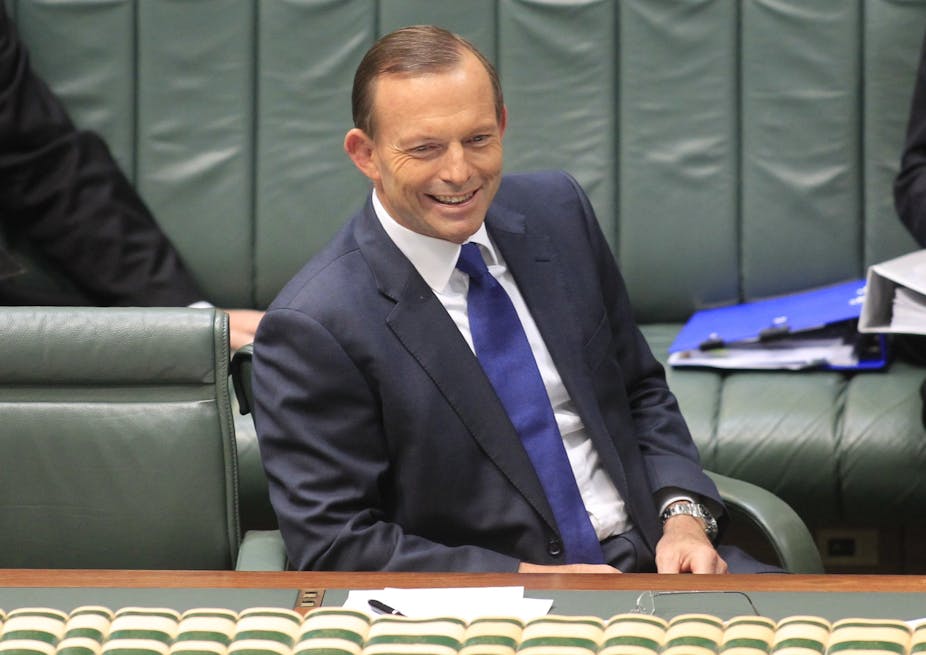The most extraordinary intervention in a disastrous week for Australian-Indonesian relations came out of the blue. Who could have anticipated the provocative tweeting by Liberal party pollster Mark Textor?
In what was taken as an obvious reference to Indonesian Foreign Minister Marty Natalegawa, Textor fired this off: “Apology demanded from Australia by a bloke who looks like a 1970’s Pilipino [sic] porn star and has ethics to match”.
He also had a go at President Susilo Bambang Yudhoyono who had tweeted his displeasure with Tony Abbott’s response to the phone tap revelations, “What sort of head of state communicates with a head of a neighbouring government by twitter FFS? SBY”.
Subsequently Textor said he was not referring to anybody in particular with his porn star comment; still later he apologised to his “Indonesian friends”.
With feelings running high in Indonesia, the Textor behaviour added (literally) insult to injury and reinforced Indonesian impressions of the ugly Australian.
Caught in a major diplomatic crisis in his early days of office, Tony Abbott might recall the rough time John Howard went through when, during the Tampa affair, then Indonesian president Megawati wouldn’t take his call.
The current situation, however, is much more serious. The disclosure that Australia tapped the phones of Yudhoyono, his wife and other senior figures has outraged Indonesia, not least because the eavesdropping is seen as a humiliation of the country.
When they are politically out of sorts, the Indonesians play rough. Foreign Minister Julie Bishop learned this early on. After Natalegawa believed a meeting between him and Bishop had been misrepresented by the Australian side, a transcript of it suddenly and mysteriously materialised. (Natalegawa has a PhD from ANU, and knows the ways of Australian politics – any comments on Textor could be interesting).
Yudhoyono has not spared Abbott this week. At his Wednesday news conference announcing the suspension of military and intelligence co-operation (including on combatting people smuggling), the President said he was sending Abbott a letter demanding an explanation.
How much easier if the matter could have been dealt with immediately by a phone call. In retrospect it is clear that Abbott did not adequately respond initially. His line that everyone spied, attempting to play down the affair’s significance while not formally confirming anything, did not impress the Indonesians.
He needed to be on the phone to the President. A letter requires a formal reply, which is awkward. The government was sweating over that late yesterday.
Abbott, who has tried to ride out the pressure with repeated references to his commitment to the relationship, called a meeting of cabinet’s national security committee.
The PM went into parliament to repeat that he would respond “swiftly, fully, courteously”, to the President’s letter, as if that needed to be said. The challenge at the moment is not the proprieties, but to get enough content into the words to satisfy, without making an actual apology.
One big problem for the government is that the spying revelations came on top of the difficulties over Abbott’s boats policy – problems that have been running since before the election.
Disclosure of the spying would always have caused trouble – especially because the targets were at the very top - but the Indonesians were not in a mood to cut Abbott any slack. Jakarta was already deeply irritated about the Coalition commitments to turn boats back and to buy Indonesian fishing boats.
The Coalition seemed to think that once it was in government, the Indonesians would just capitulate on the aspects of the policy to which they had previously objected. It took no account of repeatedly-stated Indonesian opposition. Its priority and wishes were to be supreme and a veil would be drawn over any awkward issues under the umbrella of “operational matters”.
Abbott had a successful trip to Jakarta but the Indonesians were not impressed by Immigration Minister Scott Morrison, who followed later. Anyway, they weren’t going to budge on their known positions.
Indonesia jacked up on accepting back boat people rescued by Australia. It talked publicly about what was happening, when Canberra was trying to hush things up. It has been calling the shots. The military chief of Operation Sovereign Borders, Angus Campbell, told a Senate estimates committee this week that the boat buying policy was in abeyance because of Jakarta’s attitude.
Indonesia had had to put up with being collateral damage in Australia’s election campaign. Now, as the presidential election looms next year, Australia is having to endure the same fate – but with more pain.
The Indonesian politicians won’t ignore the nationalistic, anti Australian feelings among their public. Yesterday there were demonstrations and flag burning. (On the other hand, Textor’s tweets are probably picking up on Australian anti-Indonesian feeling.)
Perhaps the strength of the Indonesian reaction to the spying is partly an attempt to tell Australia to learn once and for all that in this relationship, it should not be trying to punch so far above its weight – that Indonesia is more important to Australia than Australia is to Indonesia.
In the election campaign Kevin Rudd predicted that if Abbott became PM he would have trouble with Indonesia. And he has. The worst of the trouble, however, relates to spying material dated 2009 – when Rudd was PM.
Opposition leader Bill Shorten, apart from an early suggestion that Australia could usefully follow the US route after a similar crisis (Obama gave Germany’s Angela Merkel an assurance her phone wouldn’t be tapped in future), has stuck like glue to Abbott, hoisting the banner “Team Australia”.
For Abbott yesterday was supposed to be a moment of symbolism. Legislation for the repeal of the carbon tax passed the House of Representatives. But it didn’t have a hope of being the story.
Listen to Andrew Wilkie on the Politics with Michelle Grattan podcast, available below, by rss and on iTunes.

